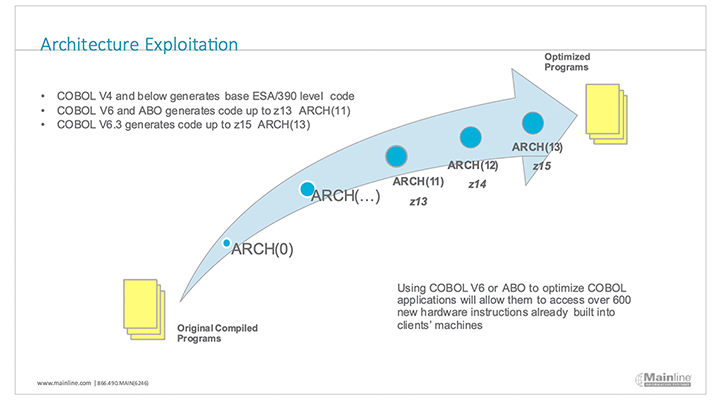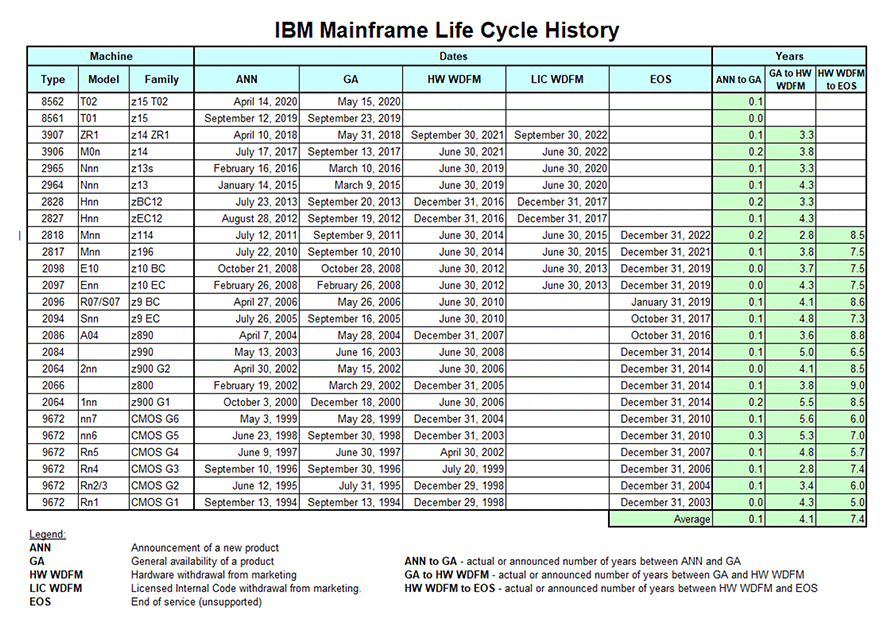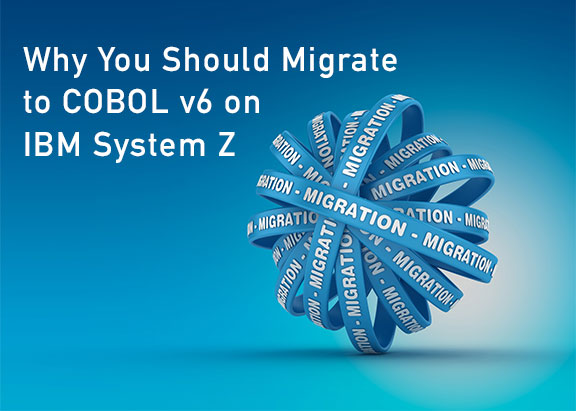Why You Should Migrate to COBOL v6 on IBM System Z
COBOL continues to be an essential component of the infrastructure that runs today’s applications, especially on IBM System z. Critical transactional applications and systems rely on the efficiency, reliability, and continued compatibility that COBOL has brought to Information Technology. That compatibility has been both a core strength, but also a weakness for the language. We’ve grown accustomed to developing or deploying COBOL applications and letting them execute for decades with minimal upkeep, modernization, or remediation.
COBOL has been a mainstay of traditional application development on IBM Z. Organizations continue to develop and maintain critical and core business logic built in COBOL, but has your organization embraced any of the new capabilities that are now part of the newest COBOL compiler – v6.3?
Why Migrate from COBOL v4.2
A large percentage of customers have made no changes to their COBOL compiler environment and continue to utilize the COBOL v4.2 compiler–or earlier. However, COBOL v4.2 for zOS was Generally Available (GA) in August 2009 and will be End Of Service (EOS) on April 30, 2022.
System z hardware has continued to advance. Major improvements in the System z hardware chip instruction sets provide simplified, streamlined, and faster compute processing. Updates and new releases of the zOS operating system continue to exploit the hardware innovations. zOS Subsystems, such as CICS and Db2, exploit this functionality as newer maintenance and releases are implemented. These additional instructions, embedded into the newer chip technology, provide for dramatically efficient computational processes. Any advances in the hardware that is sitting on your raised floor are not being leveraged by COBOL v4.2 as that version of the compiler is most closely associated with the z10 or earlier hardware instruction set(s).
It should also be noted, that COBOL v6.3 GA of September 6, 2019, and the End of Marketing (EOM) for COBOL v5 was September 11, 2017. COBOL v5 was made generally available (GA) on June 21, 2013 and EOM was announced on December 6, 2016. Keep in mind that COBOL v5 and v6 are considered the 3rd Generation of COBOL compiler technology.

COBOL v6.3 – Capabilities and Enhancements
COBOL v6.3 takes advantage of the advances in chip technology that was introduced from the z11 family (z114/z196) all the way to the z15 family of processors. There have been hundreds of additional instructions added to the chipsets during that time—over ten years of hardware technology enhancements.
COBOL v6.3 also provides additional capabilities for application developers and the ecosystem that supports application development. COBOL v5 provided enhanced XML Parsing and v6 provides JSON Parsing. COBOL v6 JSON Parsing is also eligible for zIIP processor offload—further assisting with reducing Monthly Licensing Charges (MLC) and improving performance. COBOL v6 provides support for much of the COBOL 2002/2014 standards with the “Conditional Compilation” language feature. Support for the DWARF standard for application debugging has also been built into the compiler, with enhanced capabilities for compilation of large source programs, along with user enhancements to listings.

For details on specific compiler optimizations
enabled at the various COBOL ARCH(*) levels, check out this IBM Enterprise COBOL for z/OS 6.3 document.
Summary
COBOL v6.3 provides performance improvements and enhanced functionality to the IBM Z mainframe environment. Customers need to start their planning now and get their migration underway from COBOL v.2 and onto the modern COBOL v6.3 compiler technology. The performance improvements and potential cost savings will help justify the migration.
Time is running out! Remember, COBOL V4.2 goes End Of Service (EOS) on April 30, 2022.
More Information:
Mainline is a Platinum level IBM Business Partner, the highest level in the IBM PartnerWorld program, with proven expertise to help you solve your business challenges with IBM System z solutions. Please contact your Mainline Account Executive directly, or click here to contact us with any questions.
You May Also Be Interested In:
IBM on-demand webinars to prepare and facilitate migration to COBOL v6

